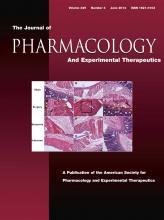Abstract
Immunotherapy against drugs of abuse is being studied as an alternative treatment option in addiction medicine and is based on antibodies sequestering the drug in the bloodstream and blocking its entry into the brain. Producing an efficient vaccine against heroin has been considered particularly challenging because of the rapid metabolism of heroin to multiple psychoactive molecules. We have previously reported that heroin’s first metabolite, 6-monoacetylmorphine (6-MAM), is the predominant mediator for heroin’s acute behavioral effects and that heroin is metabolized to 6-MAM primarily prior to brain entry. On this basis, we hypothesized that antibody sequestration of 6-MAM is sufficient to impair heroin-induced effects and therefore examined the effects of a monoclonal antibody (mAb) specific for 6-MAM. In vitro experiments in human and rat blood revealed that the antibody was able to bind 6-MAM and block the metabolism to morphine almost completely, whereas the conversion of heroin to 6-MAM remained unaffected. Mice pretreated with the mAb toward 6-MAM displayed a reduction in heroin-induced locomotor activity that corresponded closely to the reduction in brain 6-MAM levels. Intraperitoneal and intravenous administration of the anti–6-MAM mAb gave equivalent protection against heroin effects, and the mAb was estimated to have a functional half-life of 8 to 9 days in mice. Our study implies that an antibody against 6-MAM is effective in counteracting heroin effects.
Footnotes
- Received December 6, 2013.
- Accepted April 2, 2014.
This work was supported by the Research Council of Norway [Grant 213751].
- Copyright © 2014 by The American Society for Pharmacology and Experimental Therapeutics
JPET articles become freely available 12 months after publication, and remain freely available for 5 years.Non-open access articles that fall outside this five year window are available only to institutional subscribers and current ASPET members, or through the article purchase feature at the bottom of the page.
|






